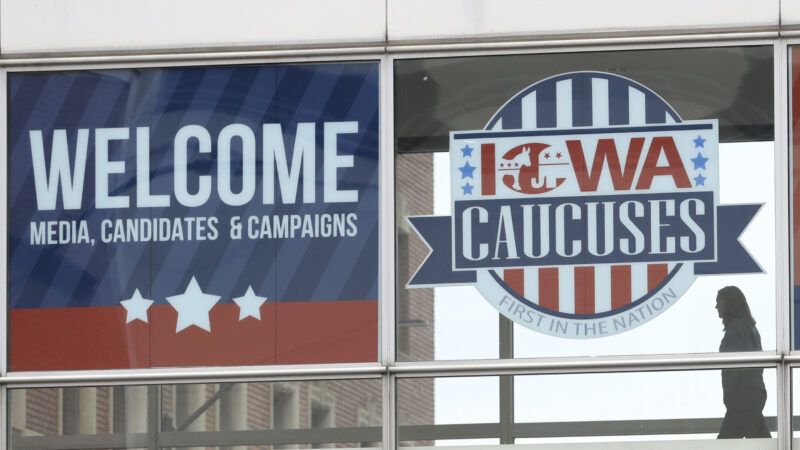Most Iowans Don't Care About the Caucuses. You Shouldn't Either.
How do the Iowa caucuses work? The fact that people have to ask every four years shows why this tradition should end.

CEDAR RAPIDS—Republican presidential candidate Nikki Haley got in trouble last week for having the gall to mock Iowans, the sacred hogs of presidential election years.
"You know Iowa starts it. You know that you correct it," Haley told an audience in New Hampshire, pitting the first caucus state against the first primary state. She later walked back the comment, chalking it up to friendly banter between early-state voters (her home state of South Carolina is third in the lineup).
As an Iowan who has weathered four GOP presidential caucuses as a voter, activist, and journalist, I think Haley got it right the first time. New Hampshire Republicans are better than us at picking nominees. The top candidate in Iowa GOP caucuses has gone on to win the nomination in competitive contests only once this century, compared to three times for New Hampshire GOP primaries.
The convention delegates at stake in Iowa are almost negligible and the GOP results rarely foretell the outcome, so why should anyone care about the 2024 Iowa caucuses? They shouldn't—and fortunately, most Iowans don't.
In an era when people can grocery shop and trade stocks on their phones from the couch, Iowans have had to show up to a specific place at a specific time to participate in the presidential nominating process. Caucus sites most often are schools, but sometimes churches, bars, or even a farmer's machine shed in the country. The meetings begin two hours after sunset and might be more than 20 miles from home for rural voters.
The forecasted high temperature on Monday is around zero, so participants will literally risk their limbs to sound off in a race where the end result—a third consecutive Donald Trump nomination—is all but certain.
The dozens of "how the caucuses work" explainers journalists publish each cycle are good evidence that it's a befuddling process. It's not service journalism, it's more like "look at the quirky shit these midwesterners do, running around high school gyms like idiots," and they're not wrong. The caucuses are as bad as the coastal journalists make them sound, if not worse.
Historically, Iowa Democrats moved around the room to sort themselves into candidate preference groups, then counted bodies to record the numbers. Candidates with too few backers were ruled not viable, so other groups yelled to persuade them and sometimes coin flips were involved. It was a kind of live-action ranked-choice voting that could drag on for hours.
In 2020, already facing internal criticism for the inaccessibility of their caucuses, Iowa Democrats botched reporting the results when they found "inconsistencies" in the returns submitted by precinct volunteers and took almost a week to come up with numbers. This year, with no serious challenger to President Joe Biden, they are removing the presidential race from the caucuses in favor of mail-in preference cards. That's better than mandatory attendance but by running a backdoor vote-by-mail primary, they're basically admitting that their caucuses were unworkable.
There's no running around at Iowa Republican caucuses, but they do still require in-person participation. Supporters can give short speeches for candidates and then attendees write down their choices to be counted by precinct officers. Yes, the party obsessed with the phantom threat of voter fraud entrusts the integrity of its vaunted first-in-the-nation nominating contest to old ladies tallying scraps of paper.
The whole thing is off-putting to normal people who would rather do anything else than spend a bitterly cold weekday night at the community center. The proof is in the numbers: Even in record-setting years (186,000 for Republicans in 2016; 240,000 for Democrats in 2008), total turnout was less than 20 percent of all registered voters. It's a good reminder that electoral politics is not real life and it's OK to tune out.
The caucuses have been good for me personally. They gave me access to candidates as a young journalist and job opportunities as a campaign staffer. Many other Iowans have also been enriched by this political tourist trap, which Reason's Peter Suderman called "a subsidy to Iowans at the nation's expense."
But most Iowans wouldn't be sad to see the caucuses go away. While party die-hards cling to the influence and money first-in-the-nation status offers them, regular people are just annoyed by the TV ads and robocalls.



Show Comments (24)